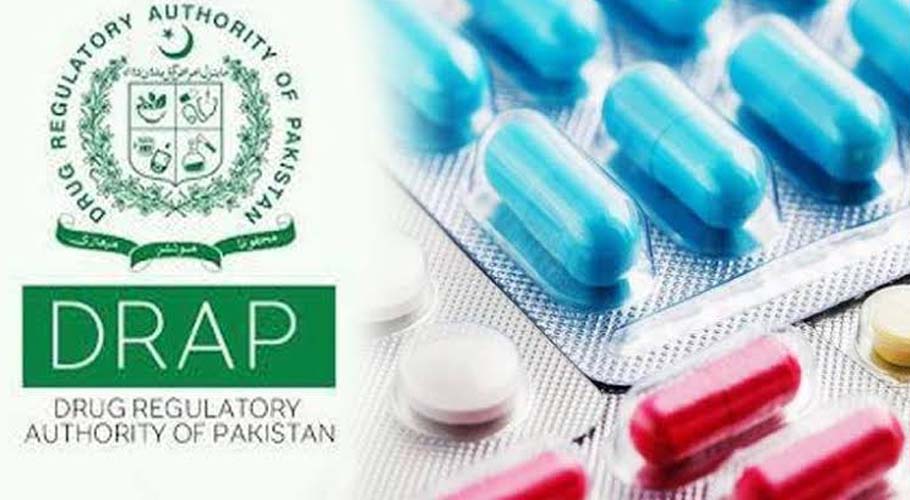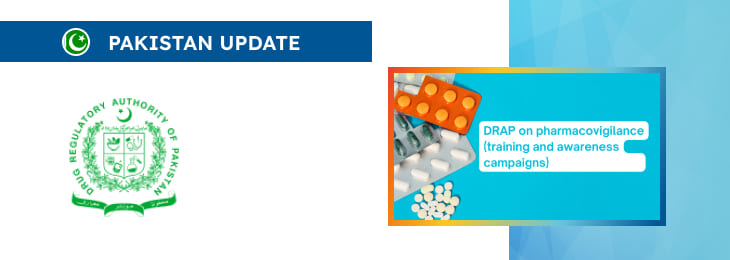The new article highlights the key aspects related to the efforts the stakeholders should make in order to improve general awareness, and also explains the approach to be taken when it comes to training activities.

Table of content
The Drug Regulatory Authority of Pakistan (DRAP), a country’s agency in the sphere of healthcare products, has published a new revision of the guidelines on the national pharmacovigilance system. The document provides an overview of the applicable regulatory requirements, as well as additional clarifications and recommendations to be taken into consideration by medical device manufacturers and other parties involved in order to ensure compliance.
At the same time, the authority reserves the right to make changes to the document, should such changes be reasonably necessary to reflect corresponding amendments to the underlying legislation.
Responsibilities as per Pharmacovigilance Rules, 2022
The document describes, inter alia, the responsibilities of the parties involved in operations with healthcare products allowed for marketing and use in the country in the context of conducting necessary training and awareness campaigns to ensure important safety-related information is duly communicated.
According to the document, the National Pharmacovigilance Centre (NPC) is responsible for :
- Encouraging Reporting: NPC is responsible for motivating Provincial Pharmacovigilance Centres (PPCs), Public Health Programs (PHPs), registration holders, healthcare professionals (HCPs), and patients to report adverse drug reactions (ADRs) and adverse events (AEs).
- Alternative Reporting Formats: Facilitates reporting by providing multiple formats, including electronic options, beyond hard-copy forms.
- Training Coordination: Organizes training sessions for PPCs and PHPs on ADR reporting using the National database (e.g., VigiFlow).
- Internal Capacity Building: Ensures training for NPC pharmacovigilance officers on data collection, causality assessment, signal detection, and risk management.
Provincial and Hospital Pharmacovigilance Centres are responsible for:
- Awareness Campaigns: PPCs must promote spontaneous reporting by organizing awareness sessions for healthcare professionals and patients.
- Hospital Training: PPCs train hospital staff on pharmacovigilance principles and reporting mechanisms.
- Promoting Reporting Culture: Hospital pharmacovigilance committees are tasked with building a reporting culture among HCPs, medical students, and patients.

Training and Capacity Building
As further described in the guidance, the National-Level Training by NPC includes:
- Comprehensive Training for NPC Staff: NPC conducts training for its officers on key pharmacovigilance activities, including causality assessment and risk management. International trainers are invited, or staff is sent abroad for specialized courses.
- Stakeholder Training: Trained NPC officers further train PPCs, PHPs, registration holders, and HCPs in:
- ADR data collection.
- Validation and entry into VigiFlow.
- Establishing functional pharmacovigilance centers.
- Collaborations: NPC organizes workshops, symposiums, and seminars for all stakeholders, including academia and HCPs, fostering knowledge exchange.
Provincial and Public Health Program Training includes:
- Provincial-Level Efforts: PPCs provide training to HCPs and hospital staff on ADR identification, assessment, and reporting. They may collaborate with potential hospitals for extended training programs.
- PHPs: With better funding, PHPs often invite international trainers or send staff abroad for training. NPC supports them with guidance on VigiFlow data entry.
Registration Holder Training:
- Internal Training Programs: Registration holders train their pharmacovigilance staff on ADR reporting, signal detection, and compliance with Good Pharmacovigilance Practices (GVP).
- They also provide training to HCPs as part of risk minimization measures.
Awareness Campaigns
Both NPC and PPCs actively work to foster a positive reporting culture. Awareness campaigns target:
- Healthcare Professionals – through meetings, symposiums, training sessions, and feedback mechanisms.
- Patients and the Public – using pamphlets, posters, billboards, and digital media to encourage ADR reporting and improve awareness.
Hospital-Level Awareness
Doctors, pharmacists, and nurses play a key role in educating patients about medicine-related risks and encouraging ADR reporting.
Registration Holder Campaigns are generally expected to:
- Develop awareness materials in local languages for HCPs and patients.
- Conduct training sessions for employees and stakeholders.
- Participate in international campaigns such as MedSafety Week.
Media and Public Engagement usually includes:
- Press and Social Media: Press releases, short documentaries, and electronic media campaigns highlight the importance of reporting.
- Community Initiatives: Civil society can be engaged to organize marathons, walks, or rallies to amplify public awareness.
Key recommendations for training and awareness as per the present DRAP guidance include:
- Focus Areas for Training: Signal detection, causality assessment, and risk management for pharmacovigilance officers.
- Incentives for Reporting: Recognizing frequent reporters with awards or appreciation letters to motivate ADR submissions.
- Enhanced Public Outreach: Use digital platforms, public gatherings, and collaborations with civil society to expand awareness.
- Continuous Improvement: Training plans should evolve based on needs assessments, professional development, and feedback from stakeholders.
Conclusion
In summary, the NPC, PPCs, and registration holders play critical roles in strengthening pharmacovigilance in Pakistan through focused training and awareness campaigns. These initiatives ensure that therapeutic goods are used safely and effectively, ultimately contributing to public health protection by enhancing the capabilities of stakeholders and promoting a culture of reporting.
How Can RegDesk Help?
RegDesk is an AI-powered Regulatory Information Management System that provides medical device companies with regulatory intelligence for over 120 markets worldwide. It can help you prepare and publish global applications, manage standards, run change assessments, and obtain real-time alerts on regulatory changes through a centralized platform. Global expansion has never been this simple.

